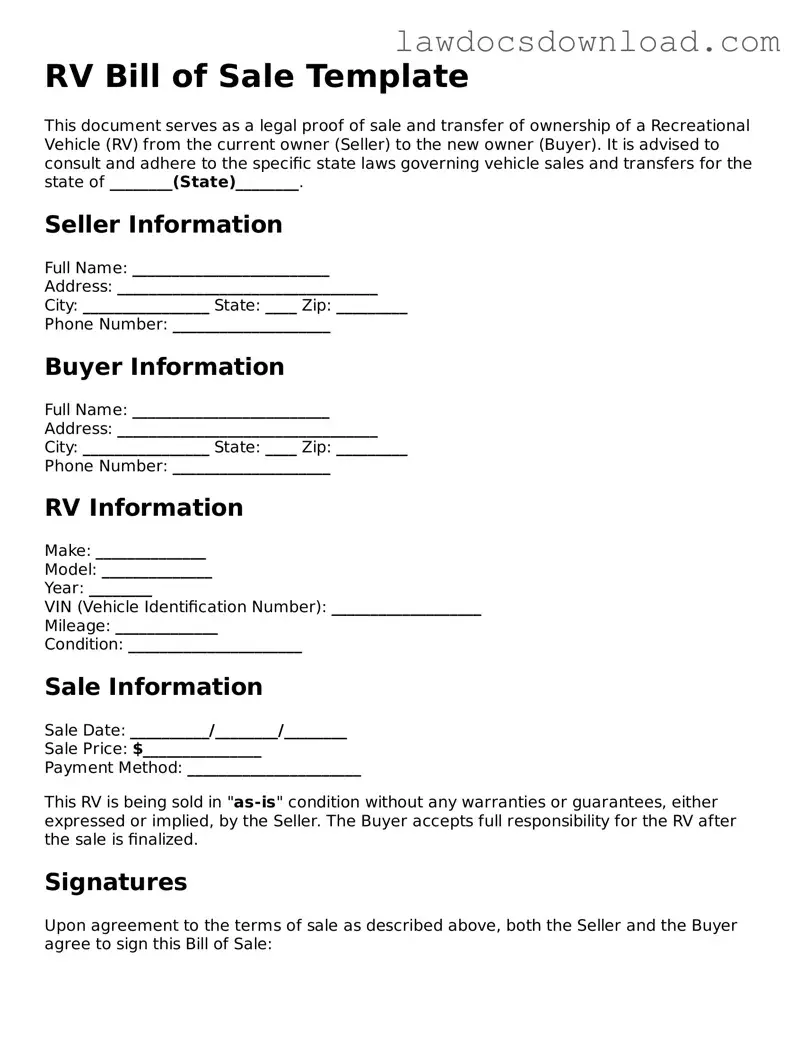An RV Bill of Sale form shares its purpose with the Automobile Bill of Sale. Both serve as legal agreements to transfer ownership from the seller to the buyer, specifying details such as price, condition, and identifying information of the vehicle. They provide concrete proof of purchase and can be vital for registration purposes, ensuring both parties are clear about the details of the transaction.
Similarly, a Boat Bill of Sale functions much like the RV Bill of Sale, being used to document the sale and transfer of ownership of a watercraft. This document outlines the sale's specifics, including the make, model, year, and price of the boat, alongside any additional equipment or accessories included in the sale. It's essential for the legal transfer of ownership and may be required for registration or insurance purposes.
The Aircraft Bill of Sale is another counterpart, designed to formalize the sale of an airplane or helicopter. Like the RV Bill of Sale, it contains specific details about the aircraft, such as its make, model, serial number, and the terms of the sale. This document is crucial for updating aircraft registration records and ensuring the buyer assumes full responsibility for the aircraft.
Turning to real estate, the Property Bill of Sale serves a similar function, although it concerns property and tangible goods within a home or building rather than vehicles. This document outlines the details of the sale, including the price and a description of the property sold. It helps in the formal transfer of ownership of physical assets, ensuring legal clarity for both the buyer and seller.
A General Bill of Sale covers the sale of personal property, from furniture to electronics, and functions similarly to the RV Bill of Sale by documenting the transaction and transfer of ownership of goods. This all-encompassing form can serve as legal proof of purchase and agreement terms, vital for resolving any future disputes over ownership.
For equine lovers, the Horse Bill of Sale documents the sale and transfer of ownership of a horse, detailing the animal's price, breed, and any other significant conditions of the sale. As with the RV Bill of Sale, this document is crucial for both buyer and seller to have clear evidence of the terms of the agreement and transfer of ownership.
A Firearm Bill of Sale closely aligns with the RV Bill of Sale by performing a similar function for the sale of guns and firearms. It lists detailed information about the firearm, including make, model, serial number, and the terms of the sale, ensuring a legal record of the transaction for registration and ownership transfer purposes.
Lastly, the Business Bill of Sale parallels the RV Bill of Sale when transferring ownership of a business. It covers the specifics of the sale, including assets, stock, and equipment, if applicable. This document is essential for the buyer and seller, providing a detailed account of what is being transferred and protecting both parties legally in the transaction.

